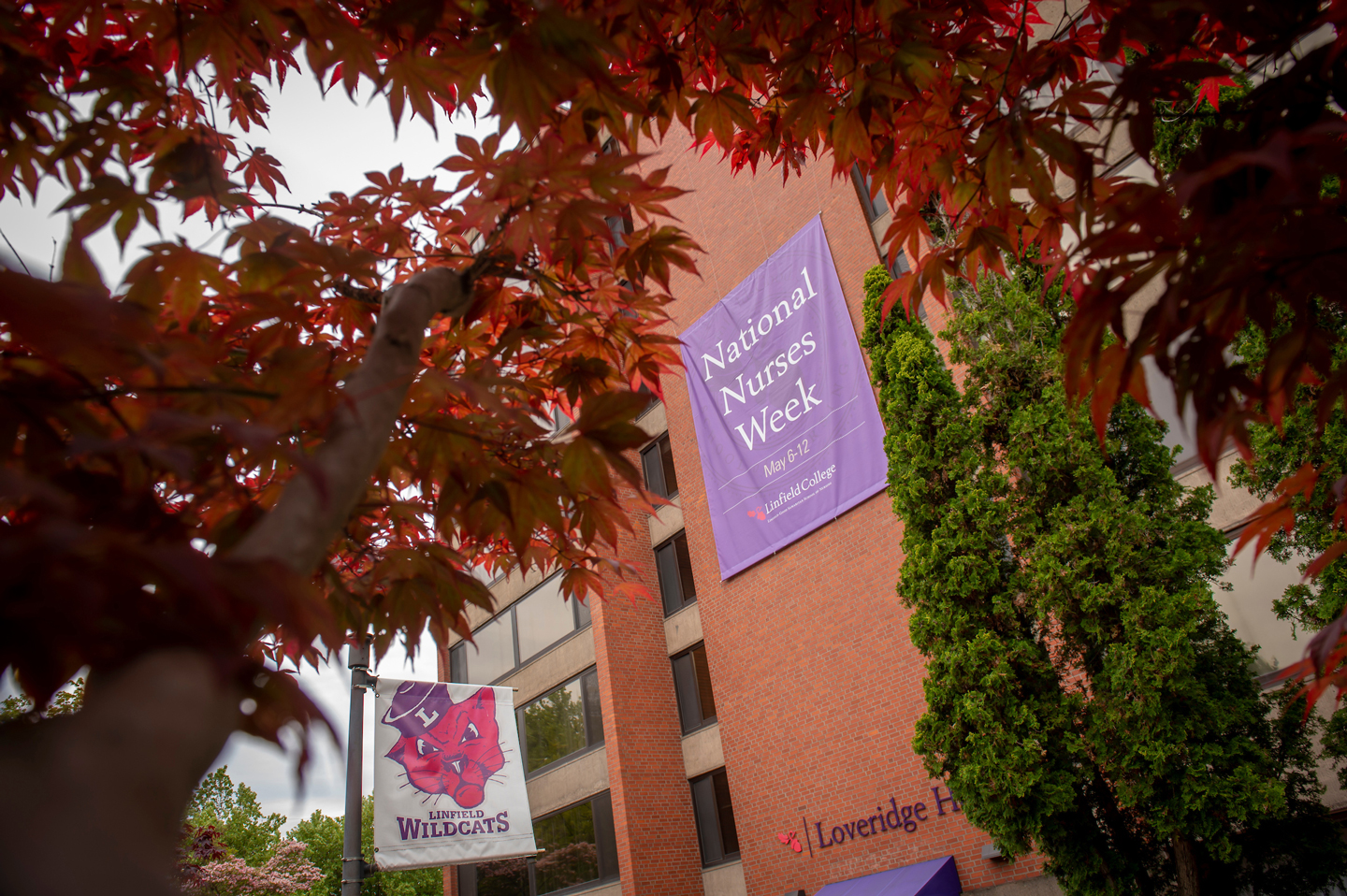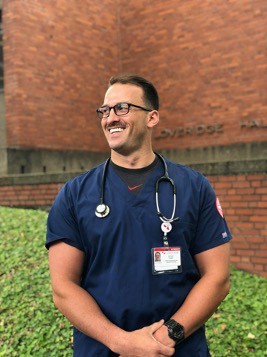
Five Linfield nursing students share their perspectives on learning about providing care online

Five Linfield nursing students share their perspectives on learning about providing care online
Hundreds of students from the Linfield-Good Samaritan School of Nursing will be joining them in the coming months and years. For these students, the COVID-19 pandemic has offered a new perspective on their future field and proved challenging to complete required coursework.
 Students are required to complete four semesters at the school of nursing in Portland to graduate from Linfield with a bachelor of science in nursing. Each semester focuses on different areas of nursing. The first semesters are focused more on nursing practices and theory, while the end of nursing cycle almost entirely revolves around clinical hours in the hospital. Linfield’s decision to transition to entirely online class for the remainder of spring 2020 has had varying effects on students at different stages of their nursing careers.
Students are required to complete four semesters at the school of nursing in Portland to graduate from Linfield with a bachelor of science in nursing. Each semester focuses on different areas of nursing. The first semesters are focused more on nursing practices and theory, while the end of nursing cycle almost entirely revolves around clinical hours in the hospital. Linfield’s decision to transition to entirely online class for the remainder of spring 2020 has had varying effects on students at different stages of their nursing careers.
Mike Hogan ’20, a fourth-semester senior, was spending the majority of his time completing clinical hours.
Guadalupe Felix ’20, a third-semester nursing student, has also had his curriculum displaced.
“The transition to classes has affected me and all nursing students deeply. The most affected course for me would be clinical, because we are no longer able to practice our skills at hospitals, chronic sites or psychiatric facilities. Our professors and staff are putting all the effort to give use case studies and simulations via online to try and still apply our clinical reasoning, but nothing beats face to face contact with patients.”
Xin Wen ’20, a third-semester student, is completing the accelerated track. This 15-month program is a more intensive approach. Wen echoed what Hogan and Felix described about the importance of hands-on interactions.
“Much of learning happens in the clinical setting, because everything we learn in the classroom is in a way, theory-based. Classroom learning does not prepare you for prioritization of time or how to respond if a patient of yours is complaining of pain and wanting relief yet does not want pain medication. Nothing can quiet prepare you for the complexity of the human body.”
Dennis Morar ’21, a first-semester nursing student, faces a more unique set of challenges as opposed to the students who rely heavily on clinicals.
“Moving online has affected my education by having it be more dependent on resources. We have been encouraged to take hold of our learning by digging deeper into the books than normal and using the internet to explore topics. This is a different approach, but still helps us to learn what it will be like to be a nurse.”
The transition to online learning also requires new study habits and techniques for nursing students at all levels.
 “Like any other online course, it took some getting used to the transition and communicating online as opposed to in-person,” said Hogan.
“Like any other online course, it took some getting used to the transition and communicating online as opposed to in-person,” said Hogan.
“Taking study breaks and going outside or to a park for a walk helps me refresh my mind,” said Felix.
“For me the hardest part of adapting is staying on top of all the new assignments and staying focused on my studies at home with lots of distractions around. I have also had to readjust how I study for exams because of not being able to meet with a study group in person,” said Maiden.
Students like Morar and Wen have found ways to make a less than ideal situation into a unique learning opportunity.
“I am an auditory learner and have always understood material better when in person, but now I try to listen to our recorded lectures several times over,” said Morar. “I do my best to read through the textbook and take notes, and I also look up practice questions to test my knowledge. This isn’t my favorite way to go about it, but it's making me grow in a different way and adapt to a strenuous circumstance which is a valuable skill to have as a nurse.”
“A benefit of distance learning is knowing you can listen to your lectures in the comfort of your home, go over reading materials throughout the week and having a few extra hours of sleep knowing there is no commute,” said Wen.
“The only constant in life is change, and this is one of those things we just gotta roll with the punches, so to speak,” said Morar. “Nursing is a field of constant need for continuing our education, outside the four walls of a classroom. This is just preparing me to be a better student.”
“I wasn’t expecting to start working until July or August, but I’ve been fortunate enough to secure a position starting the beginning of June,” said Hogan. “I think everything being online has contributed to allowing me to shift timelines as I have, and I see this as a positive.”
“I have fall semester until I graduate and I am hoping that we will go to back some degree of normality by that time so that we are able to attend clinical sites, get hours and experience,” said Felix.